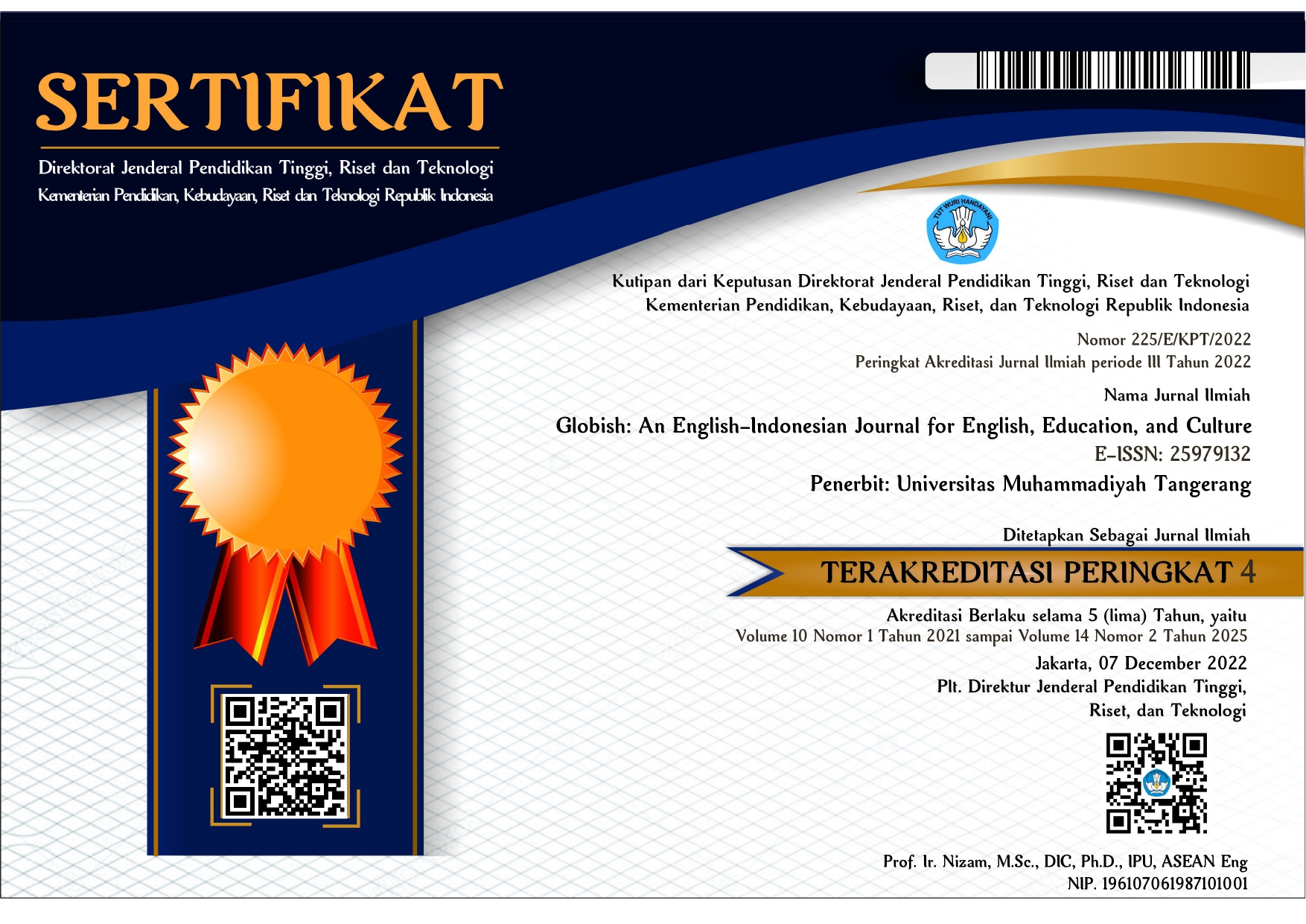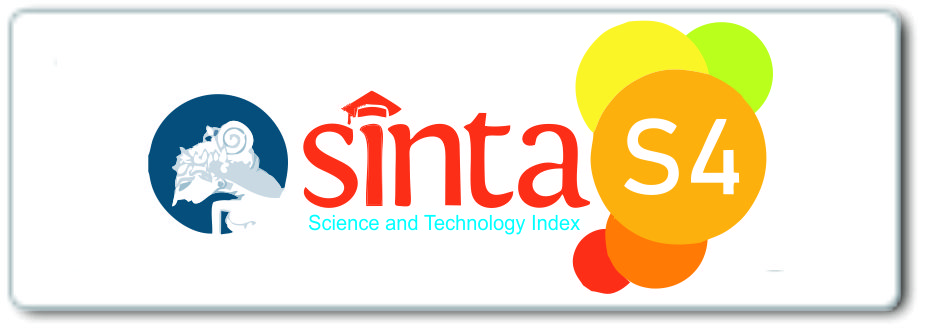Language Diversity of Hotel Signage: Insights from Surabaya
Abstract
This study explores the language diversity in hotel signage in Surabaya. The hotel signage can be met at many places in the areas of hotels and provides guidelines for their guests during staying at the hotel. The aim of this study is to explore language diversity in hotel signage in the hotels. To describe the use of language diversity of hotel signage, this study was designed in the frame of the qualitative case study in which the data were collected through on-site observation and taking the photos of hotel signage in the areas of hotels. The study found five types of signage that are used at the hotels, such as identification signage, directional signage, informational signage, orientation signage, and regulatory signage. This study provides insight into the importance of language diversity in the hotel industry and the need for the hotels to give information through diversities of language signage to their guests. This study indicates the language diversities of hotel signage which have multiple register use.
Keywords
Full Text:
PDFReferences
Agbaglo, E., & Afful, J. B. A. (2023). Sociolinguistics of Names of Hotels in Accra. Linguistics Initiative, 3(1), 1–16. https://doi.org/10.53696/27753719.3153
Cheshire, J. (2007). Style and Sociolinguistic Variation. Ed. by Penelope Eckert and John R. Rickford. Langauge, 83(2), 432–435. https://doi.org/https://doi.org/10.1353/lan.2007.0058
Clarah, R. I., Angraini, N., & Permana, D. R. (2023). A Survey of English Communication Difficulties Faced by Employees of the Front Office Hotel Department in Hotel Palembang. Journal of Teaching of English, 8(3), 261–273.
Creswell, J. W. (2014). Qualitative and Quantitative Research Design. In Social Research Methodology. SAGE Publications.
Dan, L. D., Suastra, I. M., & Septevany, E. (2021). Social Pragmatic Failure of Indonesian Mandarin Learners at Elementary Level. E-Journal of Linguistics, 15(2), 162–170. https://doi.org/https://doi.org/10.24843/e-jl.2021.v15.i02.p02
Jamal Ali, B., Gardi, B., Jabbar Othman, B., Ali Ahmed, S., Burhan Ismael, N., Abdalla Hamza, P., Mahmood Aziz, H., Yassin Sabir, B., Sorguli, S., & Anwar, G. (2021). Hotel Service Quality: The Impact of Service Quality on Customer Satisfaction in Hospitality. International Journal of Engineering, Business and Management (IJEBM), 5(3), 14–28. https://creativecommons.org/licenses/by/4.0/
Jimenez, R. R. (2012). National Accomadation Standards: Apartment Hotel. In Department of Tourism.
Katamba, F. (1994). English Words: Structure, History, Usage. In English Words: Structure, History, Usage. https://doi.org/10.4324/9780203495971
Kusumarini, Y., de Yong, S., & Thamrin, D. (2012). Signage System of Malls in Surabaya: Universal Interior Design Applications and Suggestions for Solution. Procedia - Social and Behavioral Sciences, 68, 515–525. https://doi.org/10.1016/j.sbspro.2012.12.245
Martín, J. C., Rudchenko, V., & Sánchez-Rebull, M. V. (2020). The role of nationality and hotel class on guests’ satisfaction. A fuzzy-topsis approach applied in saint petersburg. Administrative Sciences, 10(68), 1–24. https://doi.org/10.3390/admsci10030068
Nguyen, Q. H. (2021). Impact of investment in tourism infrastructure development on attracting international visitors: A nonlinear panel ARDL approach using Vietnam’s data. Economies, 9(3). https://doi.org/10.3390/economies9030131
Pratiwi, D. L. H., & Susanto, F. (2022). English Register and Its Contextual Meaning in COVID-19 Outbreaks Used in Indonesia. Anaphora: Journal of Language, Literary, and Cultural Studies, 5(2), 132–142. https://doi.org/10.30996/anaphora.v5i2.6406
Sandelowski, M. (2010). What’s in a name? Qualitative description revisited. Research in Nursing and Health, 33(1), 77–84. https://doi.org/10.1002/nur.20362
Santos, D., & Taguiam, A. (2019). Communication Capability of Signage in Hotels and Restaurants. International Journal of Advanced Research, 8(6), 495–512. www.garph.co.uk
Tafuzi, N. I., & Susanto, F. (2023). English Registers of Hotels’ Signage in Surabaya. Anaphora : Journal of Language, Literary, and Cultural Studies, 6(2), 146–158. https://doi.org/10.30996/anaphora.v6i2.9613
DOI: http://dx.doi.org/10.31000/globish.v14i2.13585
Article Metrics
Abstract - 417 PDF - 94Refbacks
- There are currently no refbacks.
Globish
Program Studi Pendidikan Bahasa Inggris
Fakultas Keguruan dan Ilmu Pendidikan
Universitas Muhammadiyah Tangerang
Jl. Perintis Kemerdekaan I/33, Cikokol
Kota Tangerang, Indonesia
e-mail: globish_journal@umt.ac.id
Globish (p-ISSN: 2301-9913 | e-ISSN: 2301-9913) is licensed under a Creative Commons Attribution-ShareAlike 4.0 International License.









